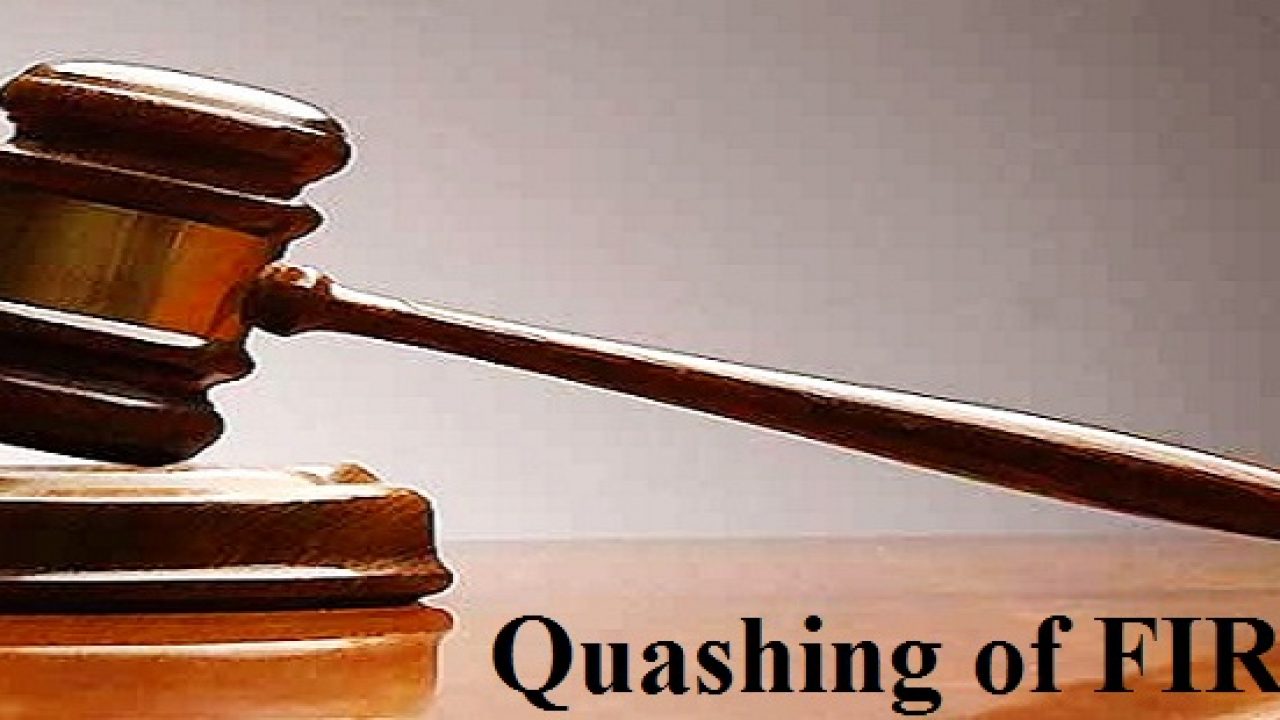Subduing of FIR
The High Court has inborn force under segment 482 CrPC to suppress the criminal procedures to forestall maltreatment of the procedure of the court and verify the parts of the bargains.
The court must investigate the accompanying focuses at the hour of Quashing:
I) Whether the material depended upon by the blamed is sound, sensible, and unquestionable, i.e., the material is of sterling and flawless quality?
ii) Whether the material depended upon by the blamed is adequate to dismiss and overrule the genuine affirmations contained in the protest, i.e., the material is such, as would convince a sensible individual to reject and censure the real premise of the allegations as bogus?

iii) Whether the material depended upon by the denounced, has not been disproved by the arraignment/complainant; and/or the material is such, that it can’t be legitimately invalidated by the indictment/complainant?
iv) Whether continuing with the preliminary would bring about maltreatment of procedure of the court and consequently, would not serve the parts of the bargains?
The Two-Judge Bench of the Supreme Court in „Anand Kumar Mohatta and Anr. v. State (Govt. of NCT of Delhi) Department of Home and Anr“.the Supreme Court has principally decided that a request under Section 482 of CrPC for suppressing of FIR is viable regardless of whether a charge sheet has been recorded for the situation. The Court for the situation additionally emphasized that the High court can practice locale under Section 482 of Cr.P.C in any event, when the release application is pending with the preliminary court.
The court may subdue the criminal continuing on the accompanying bases:
On Merit: when the summit court has been fulfilled that the preliminary would not serve the parts of the bargains when court has the motivation to accept that charge made by the complainant/indictment aren’t right and invalidated or the case has been recorded with ulterior thought processes or where there is inconsistency in arraignment/complainant’s story, the court may suppress the criminal continuing against the denounced.
The bargain between the gatherings: If the trade-off made between the gatherings, the summit court may suppress the criminal continuing.
In BS Joshi v. Province of Haryana 2003 (4) SCC 675, the Supreme Court legitimized the activity of forces under Section 482 CrPC to subdue the procedures in marital cases to verify the parts of the bargains perspective on the extraordinary actualities and conditions of the case even where the offenses asserted are non-compoundable.
On account of R P Kapur v. Province of Punjab 1960 AIR 862, the Supreme Court of India held that criminal procedures against an individual can be subdued if the case being managed has a place with any of the accompanying three classes of cases:
I) Where there is a legitimate bar against organization or duration of the criminal procedures.
ii) Where the claims in the FIR don’t establish an offense, regardless of whether fully trusted and completely.
iii) Where the claims made comprise an offense, yet no proof can demonstrate them.
